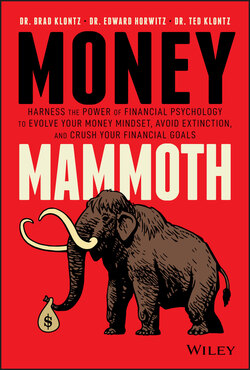Читать книгу Money Mammoth - Ted Klontz - Страница 49
A BIG HEADS-UP
ОглавлениеBeware! Your children will be learning about money long before you think you need to teach them. From birth, they have been exposed to money. At some point in time, they witness the magic. They may not know what happened, but they noticed something big happened, and money was involved. By the age of two, they will begin becoming aware of its magic-like qualities. It's power to bring, or take away, happiness or sadness, and that it often arrives around birthday time with other gifts and attention.
For example, imagine walking through a mall with a young child when he or she notices one of those coin-operated mechanical horses that when you drop a coin in, it magically starts moving, providing an instant adventure. Your little one is enraptured by the sight and sound of the horse rocking and his or her awareness that another child is mounted on it bouncing up and down, squealing with delight. As you approach, your child sees that the other child is dismounting with an incredible look of satisfaction.
Your child begins pulling on your hand, looking up into your eyes with a pleading gaze that says, “Please, please, please!” You're in a rush, but you weigh the costs of saying, “No,” and decide to consent in order to maintain the peace you need. You dig into your purse or wallet, fish out some quarters, and insert them. From now on, when your child sees something that he or she wants to do, he or she has learned that you carry magic coins with you that bring fun and happiness. If you didn't have any coins with you, you might have to deny your child that experience, and he or she would quickly learn the consequences of not having money.
